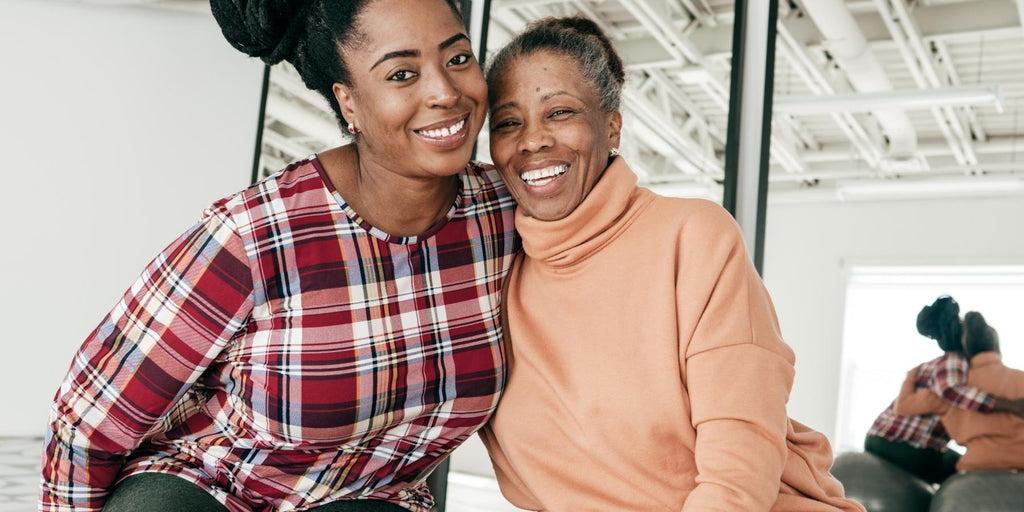October 10, 2021
Finding your words post mastectomy - what NOT to say to your friend getting a mastectomy
She’s your friend. She’s had a boob or two removed. She’s still the same person.Yet no matter how many times you repeat the words over and over, you still don’t seem to be able to put sentences together when you’re with her. What is going on?
Struggling to find the right things to say, and terrified of saying the wrong thing, are common anxieties when you’ve witnessed someone you care about go through something as physically and mentally traumatic as a mastectomy.
Our advice — well, a stack of advice from friends and survivors of #TheNOODist — is to, above anything else, just be yourself. Sure, you might put your foot in a few times to begin with, but all your friend really wants is her fabulous friend.

- Don’t treat a mastectomy like a boob job
For women, breasts are a huge part of their identity, so losing a breast, or both, can be traumatising. After a mastectomy, women don’t opt for reconstruction for the fun of it, so as breast cancer survivor Maha Gorton points outs, the worst thing you can tell someone is, “oooh, lucky you. You get new boobs”. From little to no sensation, missing nipples, scars and side effects, reconstructed breasts have a whole set of issues of their own.
- Don’t create false hopes
Statements including “just stay positive”, “everything will be okay” and, “you will be fine” may sound like great advice but not for someone who doesn’t know how the disease will progress or the complications that may follow. Sometimes, people don’t need advice, so we suggest you listen to your friend instead. Validate their decisions and be supportive even if you have other suggestions. Be compassionate.
- Don’t keep asking questions
It’s not uncommon for people to ask someone who has just had a mastectomy what it feels like to have their nipple removed or what their chest looks like. Don’t be one of those! Maybe your friend doesn’t want to talk about their mastectomy just yet. Respect that. And for those who deliver the final blow with comments like “but you still look great” or “you look fine” – these are not the things someone fighting cancer wants to hear. If you must ask questions or say anything at all, ask how are they feeling or what are the thoughts going through their mind.

- Don’t share negative stories
It’s great if you’re one who believes the glass is half full but, trust us, your friend isn’t going to feel better listening to stories about someone else who had a worse experience. Nor are they going to appreciate it if you tell them about someone who died from breast cancer but you’re pretty sure they can beat cancer because they are a fighter.
The experience is frightening; listen to your friend and support them in any way you can. “I’m here for you”, “let me know what you need”, and “glad to help” are good, but listing specific ways you’re willing to help is even better. Let them know you could cook a meal, take them to their next doctor’s appointment or even run errands on their behalf.
- Don’t treat your friend differently
Though there’s no perfect thing to say because some might find your words comforting while others may not, the one thing anyone fighting breast cancer does not want is: a look of pity. Don’t treat them differently. Invite them to outings and let them decide if they want to join you or not. Don’t avoid your friend because you don’t know what to say or do as that could make them feel you’re not acknowledging what they’re going through.

- Don’t assume hugs are the best way to comfort a friend
For someone who has gone through a mastectomy and reconstruction, their new breast, or breasts, may look like a natural breast but it feels numb due to nerve damage. This loss of sensation can be devastating. They probably won’t feel a thing when you hug them so you need to find other ways of giving and receiving affection to avoid an awkward situation and to make them feel at ease.
The most important thing to remember is that your beautiful friend is still a woman wanting to talk about normal things and be treated exactly the same as everyone else. You can still be vulnerable and make mistakes around her. You can still TALK to her. Ask her how she would like to be supported and go from there.







